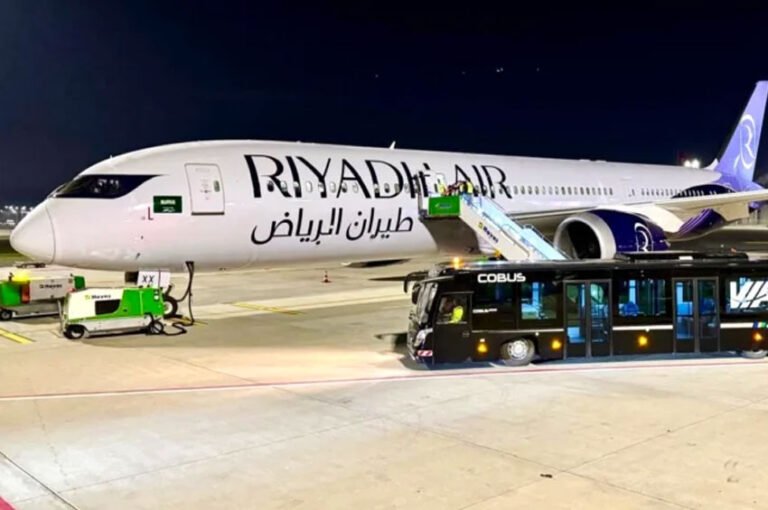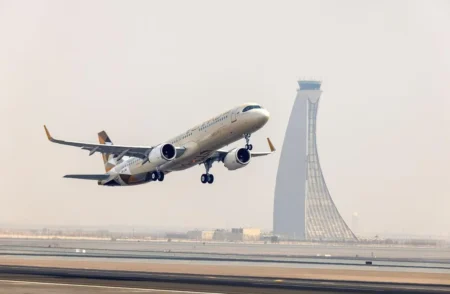ISTANBUL: The Flag carrier of Saudi Arabia, Riyadh Air (RX) operated its first test flight from King Khalid International Airport (RUH) in Riyadh to Istanbul Airport (IST) on January 23, 2025.

The Saudi carrier is set to capitalize on the Saudi Vision 2030 mission as it plans to serve over 100 destinations by 2030. So far it has partnered with 8 airlines including Turkish Airlines (TK). Further, it has 132 aircraft orders and plans to create over 200,000 jobs.
The aircraft was handled by Havas, a ground-handling company. Havaş delivers ground handling services to over 200 airlines across airports in Türkiye and abroad. Its core operations include passenger and baggage handling, ramp services, aircraft cleaning, load control, cargo and mail handling, flight operations, transportation, and representation and supervision services.
The flight was operated by Boeing 787-9 Dreamliner, registered as HZ-RXX. Further, it is a 7.9-year-old aircraft, previously operated by Oman Air (WY).
Following the delivery delays from Boeing, the airline has leased this aircraft as a spare to train its crew and conduct test flights.
The airline will launch operations in the second half of this year as soon as they get two aircraft.
Last year, Riyadh Air and Turkish Airlines signed a Strategic Cooperation Memorandum of Understanding during the ICAO Air Services Negotiation Event in Riyadh, Saudi Arabia, establishing a comprehensive partnership to enhance global connectivity and passenger experience.
The agreement enables seamless interline and codeshare services between the two carriers, allowing passengers to leverage each airline’s extensive global network. Passengers will benefit from interconnected travel routes spanning the Kingdom of Saudi Arabia, Türkiye, and beyond their respective Riyadh and Istanbul hubs.
Signed by Turkish Airlines Chief Investment and Technology Officer Levent Konukcu and Riyadh Air CEO Tony Douglas, the memorandum anticipates implementation following Riyadh Air’s operational launch in mid-2025, subject to regulatory approvals.
The collaboration encompasses multiple strategic dimensions, including reciprocal loyalty program point earnings, potential broader loyalty agreement development, and exploration of synergies across aviation services, cargo operations, and digital technologies.




